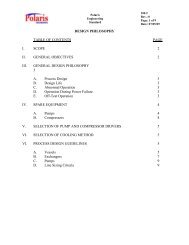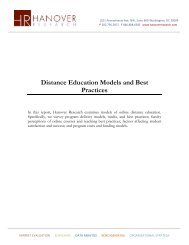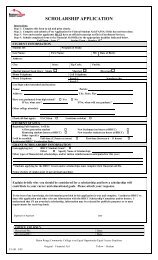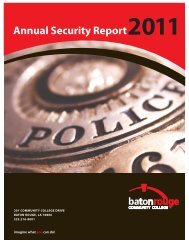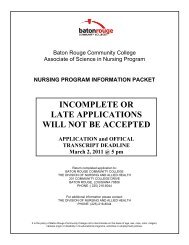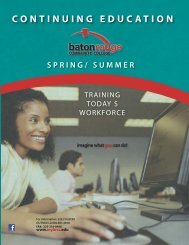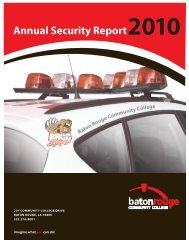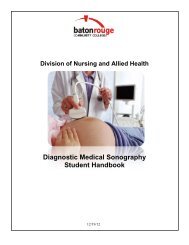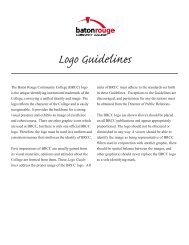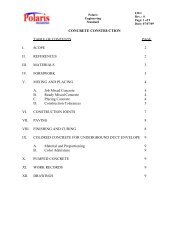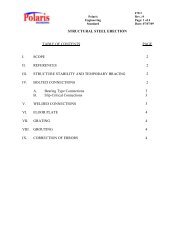student handbook - Baton Rouge Community College
student handbook - Baton Rouge Community College
student handbook - Baton Rouge Community College
You also want an ePaper? Increase the reach of your titles
YUMPU automatically turns print PDFs into web optimized ePapers that Google loves.
Appendix H – Student PublicationsFreedom of the Press StatementOfficially recognized BRCC <strong>student</strong> publicationsare free from censorship, and <strong>student</strong> editors arepermitted to develop editorial policies and determinethe coverage and content of the publications. Oncampus, <strong>student</strong>s are afforded freedom of the pressand speech, as guaranteed in the First Amendment tothe Constitution of the United States. These rights willnot be impinged upon by the college or any of itsagencies, faculty, staff, or administrators.Student journalists can report on and editorializeabout controversial issues that might affect thecollege, community, nation, and the world. However, when reporting,the BRCC <strong>student</strong> press is expected to practice responsible journalism.Student journalists should never use obscene material, write libelousarticles, or incorporate material that intentionally interferes or disruptsthe educational process. Though BRCC does not review <strong>student</strong> writtenmaterials prior to printing, <strong>student</strong> editors should be reminded that theyare legally liable for publishing and distributing materials which mightinclude damaging information.Definitions of Unprotected Speech1. Students should never print, publish, or distribute obscene material.Obscene materials - sexually explicit material that offensivelydescribes/depicts lewd images of the genitals and/or promotesa prurient interest in sex; or similarly offensive, indecent materiallacking any serious literary, artistic, political, or scientific value.2. Students are forbidden from publishing or distributing libelousmaterial. Libelous statements - false statements willfully ornegligently published that can injure an individual’s or business’reputation in the community. Typically, it must be proven that astatement is libelous and was published without forethought or withmalice; that there was a reckless disregard for truth, and the editorpurposefully did not check the accuracy of the statement prior toprinting/distributing it.80



